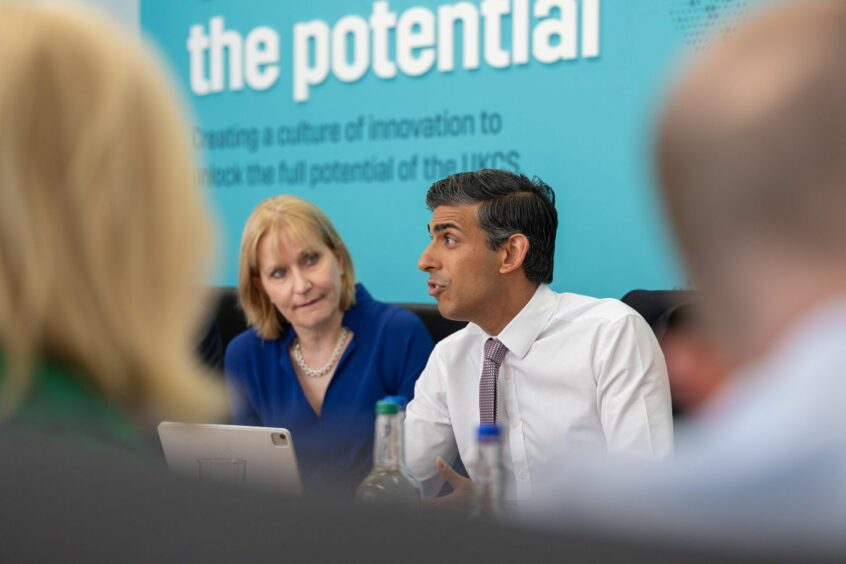
Last month, Chancellor Rishi Sunak flew into the Granite City – home of the UK’s offshore energy industry. He was there to listen directly to the concerns put forward by industry leaders on the Government’s proposed energy profits levy.
The Energy (Oil and Gas) Profits Bill being put to parliament will introduce an additional 25% tax on oil and gas producers. This will come on top of the existing headline corporation tax rate paid by producers of 40 percent – more than double that of other UK businesses, and the highest general tax rate in the history of the North Sea.
The way the tax has been imposed on the sector has been met with concern and has obviously sent negative signals to investors. After a decade of fiscal stability through some very difficult years for the North Sea, this risks long-term UK energy supplies, jobs and placing added burden on consumers.
Offshore Energies UK, the leading body for the industry, also raised concerns about the need to ensure secure supplies of energy especially for this coming winter, instead of increasing reliance on imported energy.
It was a candid and constructive meeting with the Chancellor where we warned of the risk to investor confidence caused by sudden new taxes.
It’s no secret this sector is crucial to providing secure supplies of oil and gas to millions across the country, while at the same time driving the energy transition.
But what people may not know is we will never produce more gas than we need as a country. And at the same time, the oil we do produce is often done with a lower carbon footprint than many other countries while also supporting the UK economy and tens of thousands of jobs.
By 2050, UK gas and oil output will be equivalent to 10m tonnes per year, but demand is predicted to reach 23m tonnes.
Without new investment, the North Sea Transition Authority and the Climate Change Committee predict UK oil production will fall to half of demand by 2030. For gas it could fall even more sharply to less than 25 percent.
This would mean an energy gap of 13m tonnes that we will have to increasingly import from other countries unless we open new fields and sustain investment for existing ones.
And that is no easy feat. That investment may now well be at risk because of the levy on company profits.
So, what came out of the discussion with Sunak?
There’s nothing more attractive to investors than a stable and predictable fiscal regime.
That is why industry will continue to work with government to mitigate the damage this tax will cause, especially the impact on investor sentiment.
No two oil and gas companies are the same. Which is why we also asked government to recognise the diversity of operators in the basin who will be affected to varying extents.
But importantly, many of these companies are also the same ones investing in low carbon solutions like floating wind, carbon capture and storage, and hydrogen in the UK basin.
The challenge for us all as we look to protect secure supplies of home produced and cleaner energy is to make sure that their money does not go elsewhere. This is the best way to deliver a cleaner energy future, and to support consumers today
Recommended for you
